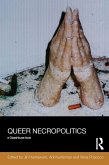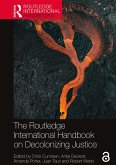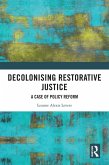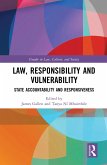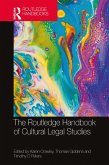In 2013, Argentina celebrates thirty years of democracy since the end of the last dictatorship (1976-83). In that period, visual artists and art-activists have been central both to campaigns that have sought to initiate the criminal prosecutions of those initially granted amnesty and to a variety of commemorative projects. In
The Art of Post-Dictatorship: Ethics and Aesthetics in Contemporary Argentina Vikki Bell provides an assessment of these interventions, examining them as important moments in how the horrors of the last dictatorship period are recalled.
Dieser Download kann aus rechtlichen Gründen nur mit Rechnungsadresse in A, B, BG, CY, CZ, D, DK, EW, E, FIN, F, GR, HR, H, IRL, I, LT, L, LR, M, NL, PL, P, R, S, SLO, SK ausgeliefert werden.




